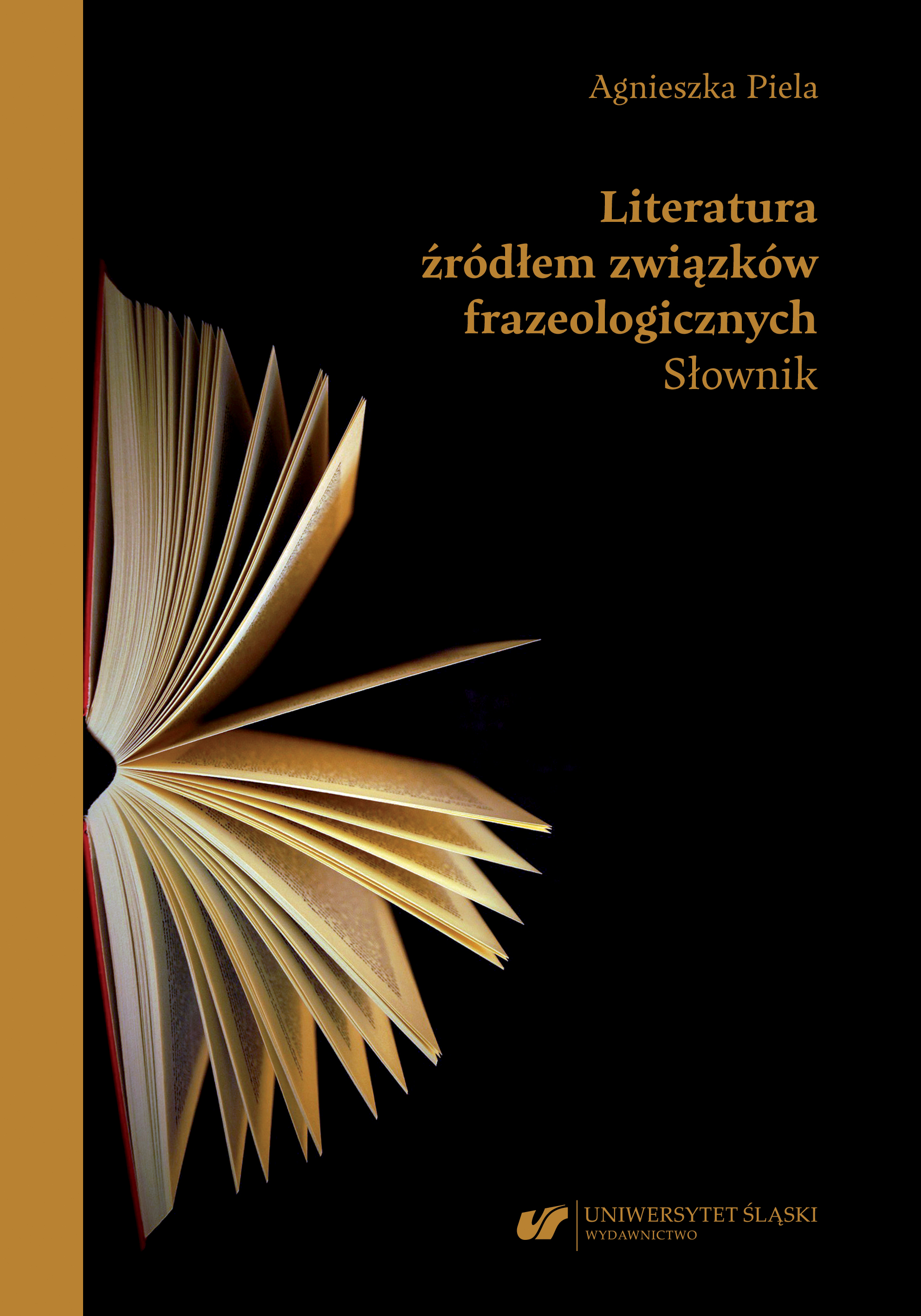Literature as a source of phraseological compounds. Dictionary


This work is licensed under a Creative Commons Attribution-ShareAlike 4.0 International License.
Details about the available publication format: LOOK INSIDE
Details about the available publication format: BUY THE BOOK
Synopsis
Literature is one of the oldest sources of phraseology. In the Polish phraseological resource, and not only in Polish, but there are also expressive associations of writer's provenance, the roots of which date back to antiquity. Importantly, this source is still alive and open, as evidenced by new constructions of this type entering the social circulation. Connections formed under the influence of various literary texts represent a sparsely investigated aspect of the Polish phraseological stratum. So far, there has been no elaboration showing the richness of the discussed phraseologies and explaining their literary origin. The presented collection, containing a total of 142 units of language, fills this gap in Polish lexicography. The book delineates the connections documented within both general and specialized dictionaries, as well as elucidates relationships newly incorporated into this lexicon, such as "plume dance," "waiting for Godot," "Dantean scenes," "heart of darkness," "Kafkaesque situation," "rabbit relatives and friends," "to rejuvenate hearts," "lion's share," "small apocalypse," "Mrożek would not have invented it," "order of souls," "lonely white sail," "skin and bones," "shadow streak," "The Three Brothers Budrys," and "call of blood". In native linguistics, there lacks a distinct designation for fixed constructions with a literary lineage. Consequently, the author introduces the term "literatureism" and its classifications: "lexical literature" and "phraseological literature." The main purpose of the publication is to present the meanings and etymology of the indicated fragment of phraseology. Studying the literary origins of currently operative expressions appears crucial, as the rationale behind many of them becomes increasingly obscure to users of the Polish language. Consequently, there exists a risk of their eventual obsolescence.



